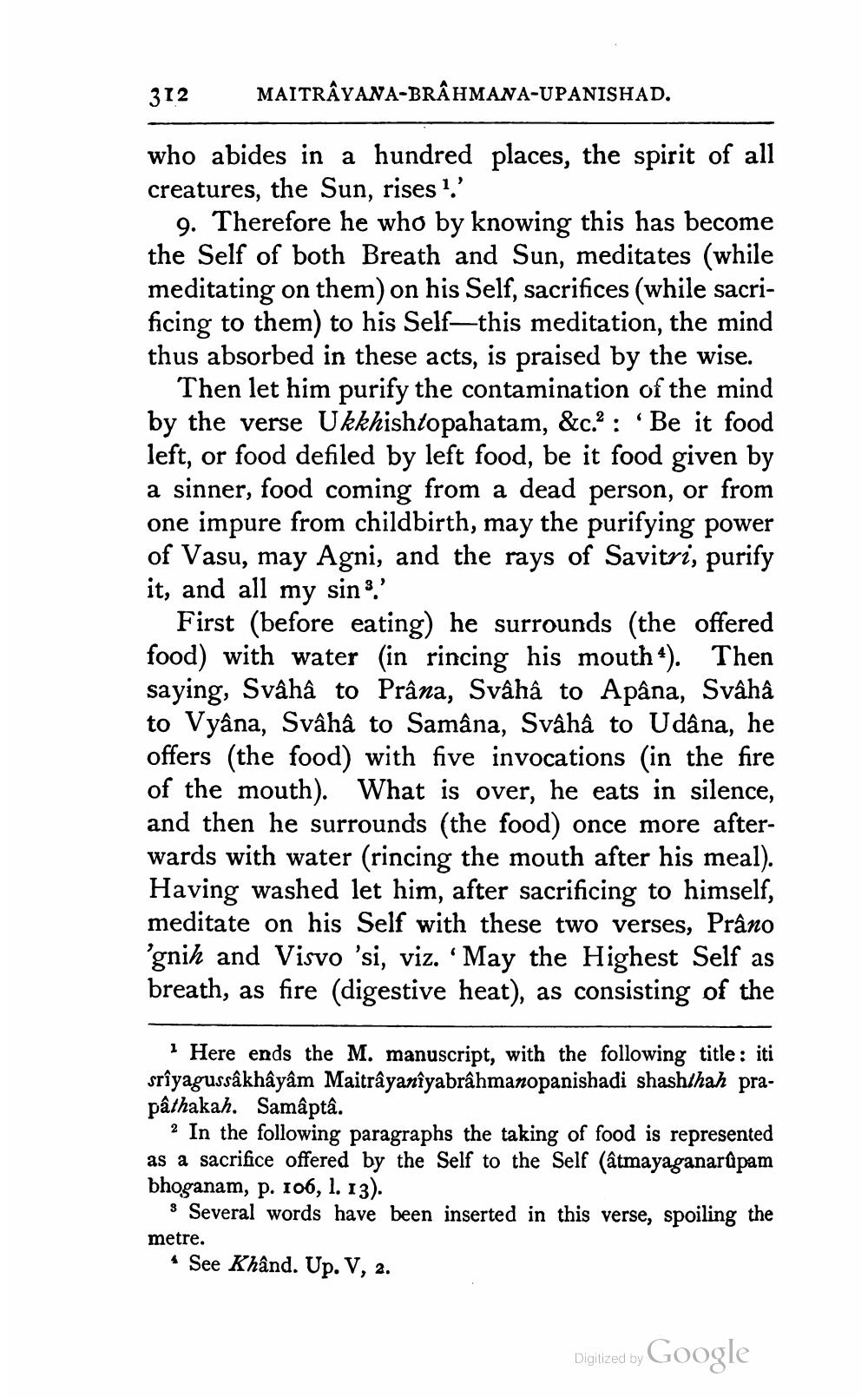________________
312
MAITRAYANA-BRÂHMANA-UPANISHAD.
who abides in a hundred places, the spirit of all creatures, the Sun, rises 1.'
9. Therefore he who by knowing this has become the Self of both Breath and Sun, meditates (while meditating on them) on his Self, sacrifices (while sacrificing to them) to his Self—this meditation, the mind thus absorbed in these acts, is praised by the wise.
Then let him purify the contamination of the mind by the verse Ukkhishtopahatam, &c.? : 'Be it food left, or food defiled by left food, be it food given by a sinner, food coming from a dead person, or from one impure from childbirth, may the purifying power of Vasu, may Agni, and the rays of Savitri, purify it, and all my sins.'
First (before eating) he surrounds (the offered food) with water (in rincing his mouth 4). Then saying, Svâhâ to Prâna, Svâhâ to Apâna, Svâhâ to Vyâna, Svâhâ to Samâna, Svâhâ to Udâna, he offers (the food) with five invocations in the fire of the mouth). What is over, he eats in silence, and then he surrounds (the food) once more afterwards with water (rincing the mouth after his meal). Having washed let him, after sacrificing to himself, meditate on his Self with these two verses, Prano 'gnih and Visvo 'si, viz. "May the Highest Self as breath, as fire (digestive heat), as consisting of the
* Here ends the M. manuscript, with the following title: iti srîyagussâkhâyâm Maitrâyanîyabrâhmanopanishadi shashihah prapâthakah. Samâptâ.
2 In the following paragraphs the taking of food is represented as a sacrifice offered by the Self to the Self (âtmayaganarūpam bhoganam, p. 106, 1. 13).
3 Several words have been inserted in this verse, spoiling the metre.
* See Khând. Up. V, 2.
Digitized by Google




